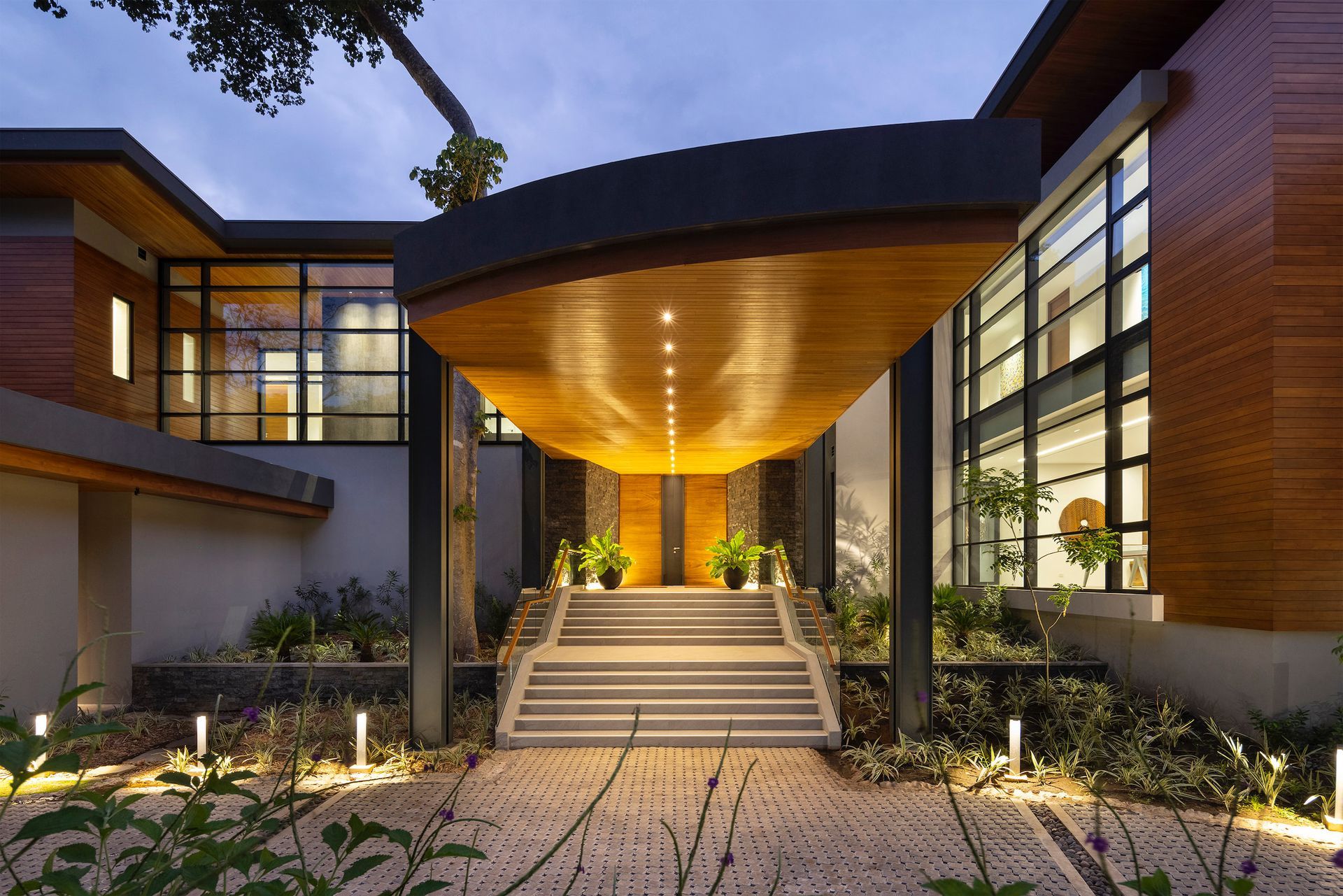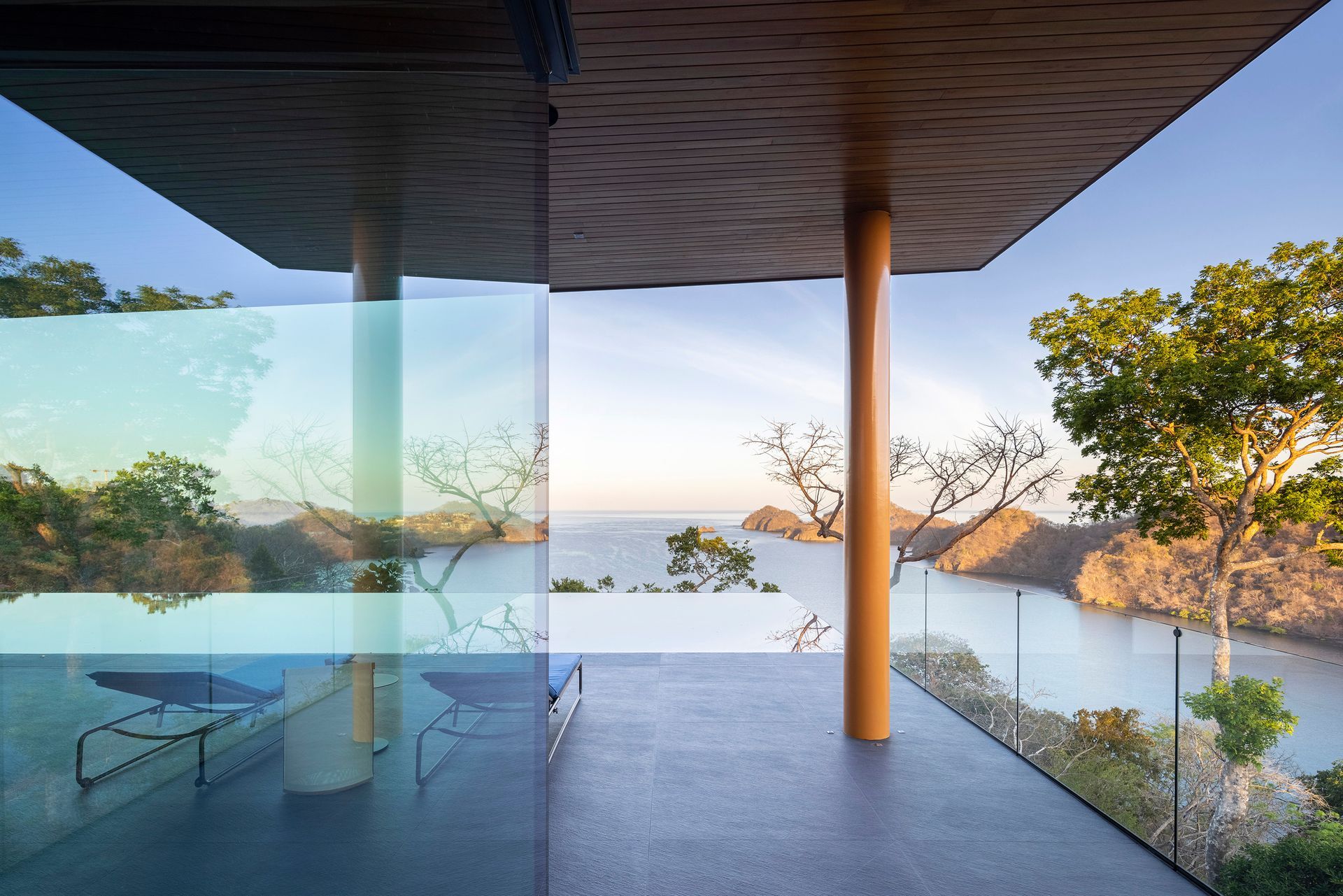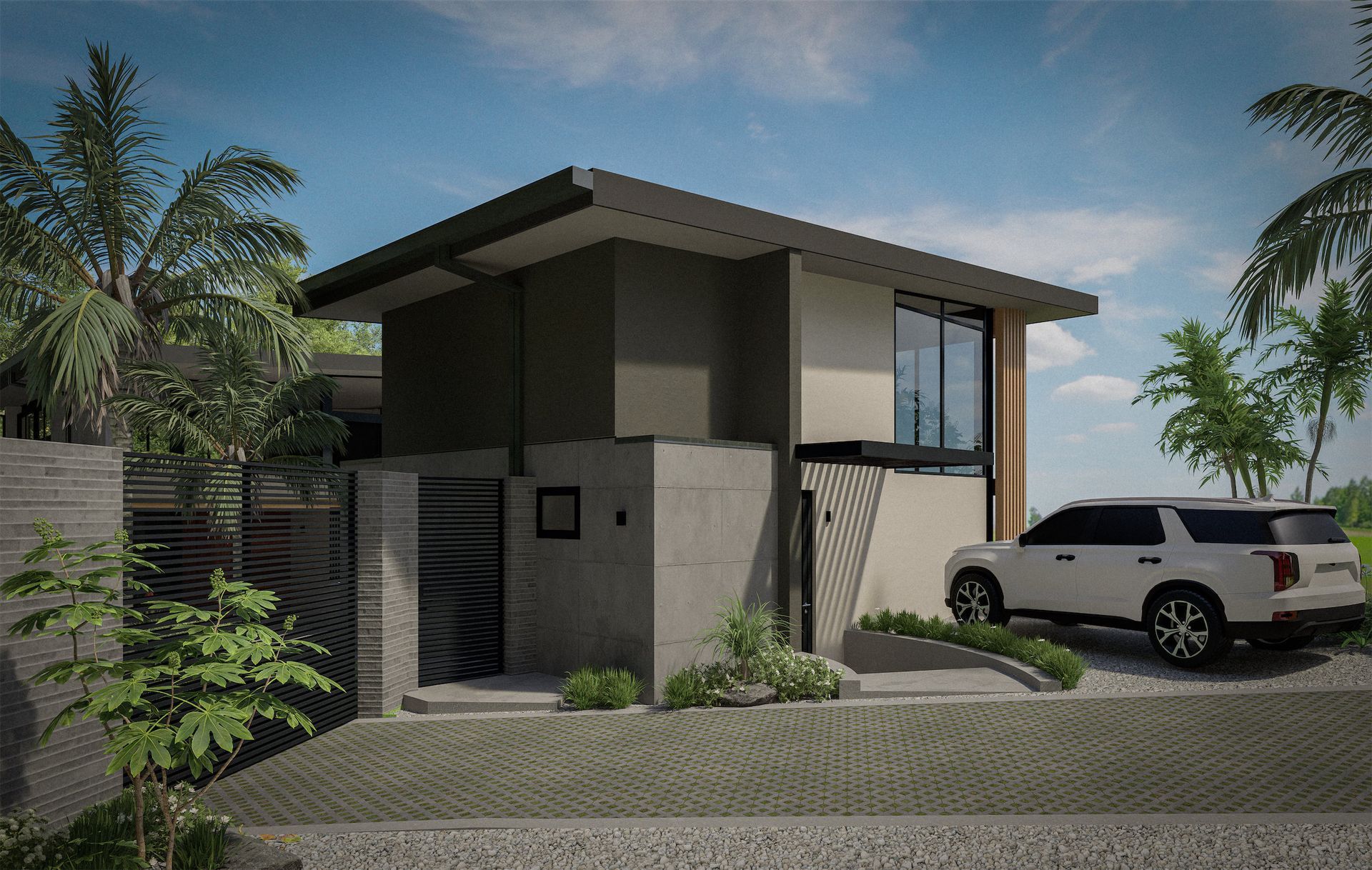Developing a "What If" Property in Costa Rica
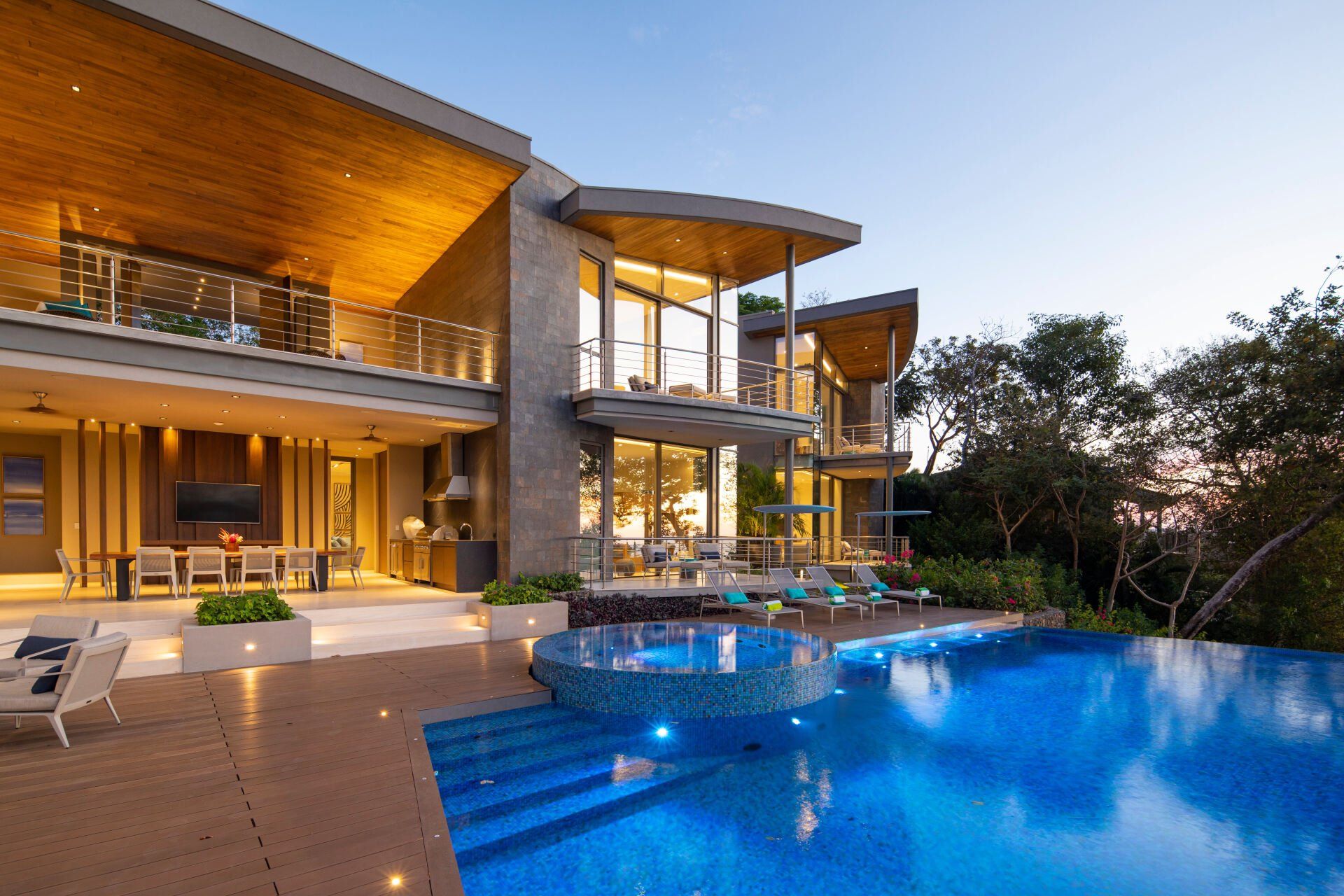
There are several reasons to buy property in Costa Rica.
Whether it’s wanting to live somewhere exclusive and safe, or just having a dream home to escape to — investing in land or buying a house in Costa Rica is an attractive option for many prospective buyers.
One other reason to consider buying land in Costa Rica is to develop a “what if” home.
A “what if'' property? You might be wondering, “What’s that?”
Also called a “Plan B” home or an “escape” home, a “what if” home is a home to escape to when the “what ifs” happen.
What if we have another pandemic? What if another terrorist attack happens? What if we have some other disaster that makes your current home less safe? What if you just need a break?
More and more people are choosing to invest in homes with this in mind. An escape home isn’t only for doomsday preppers anymore!
We will cover in this article:
- What is a “what if” home?
- Why you should consider investing in a “what if” home
- What to include in your “what if” home
- And why Costa Rica is the perfect place to design and build your bespoke "what if" home
First Things First, What Is a "What If" Home?
Have you ever felt a need to escape? Whether it’s because you feel overloaded at work or something monumental in your life has given you a new perspective — sometimes it’s nice to know you have somewhere else to go for a change of scenery…or even to start a completely new life.
A “what if” home is the type of property you might buy when your bank accounts look healthy, and you feel that it’s time to see if the property market can add some additional value to your life.
At the same time, we see people investing in these types of homes when they are feeling hesitant or concerned about the current state of things.
We first saw people investing in the “what if” homes in Costa Rica after 9-11. Suddenly, those living in big cities saw the value of having an off-the-beaten-track place to escape to.
During the market increase in the years after 9-11, we saw many investing in real estate in Costa Rica. The market was strong enough for people to feel secure investing in property, but there was a lot of uncertainty and fear after 9-11.
Now, these types of homes might make people feel a bit weird. We want to stress that we aren’t talking about the compounds that doomsday preppers build.
You don’t need a place to store enough food for 30 years and a whole arsenal of weapons. We aren’t suggesting a moat or a complex “anti-zombie” alarm system.
Your “what if” home might not look that different from a regular home. On the other hand, some of the “what if” homes our clients ask us to design are pretty special and unique.
What Type Of Property Should My “What If” Home Be?
Your “what if” home can be whatever you want it to be. It can be a house, apartment, or condo! You can even use it for generating income until you want to make use of the property yourself.
Owning a property for the purpose of generating income isn’t that different to the US, even with legal fees and transfer taxes taken into account. The biggest difference is that there’s just a better chance of year-round warmth and a more steady supply of eager tourists wanting to find the perfect place to visit in a naturally beautiful area.
Whether you just start with purchasing the land or you manage to hop on the perfect ‘Plan B’ property already kitted out, Costa Rica real estate provides the perfect excuse to start living at least some part of your life in a foreign country (or just having it there for when the time feels right!).
Why Would I Need a "What If" Home?
The whole point of a “what if'' home is that very few people actually “need” one, but those who have one rarely regret owning one. Just some of the reasons people own a “Plan B” property include:
1. Political uncertainty
With a divide across America putting some residents on edge, the idea of escaping political unease and the general heaviness of society is an appealing prospect…some might even say that it’s priceless!
2. Wanting another property if your main home is unavailable
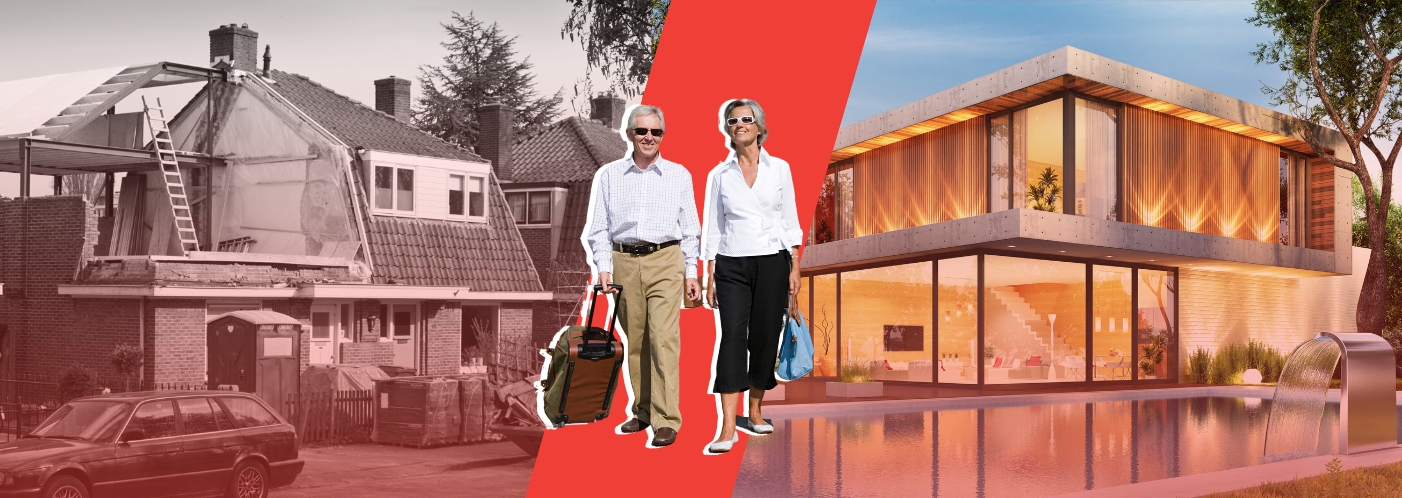
There are also more practical reasons for owning a “what if” property. Have you ever come home to a leak or had major renovations? During these times, wouldn’t it have been nice to have had some place else to go?
3. Have a different location to work from

After the pandemic, more people than ever are also now seizing the opportunity to work from anywhere in the world. This means that for a lot of people, their location at any given time is no longer an issue.
If you have an opportunity to purchase property abroad and have somewhere to refocus your mind, and connect with beautiful nature, why wouldn’t you?
4. For investment purposes
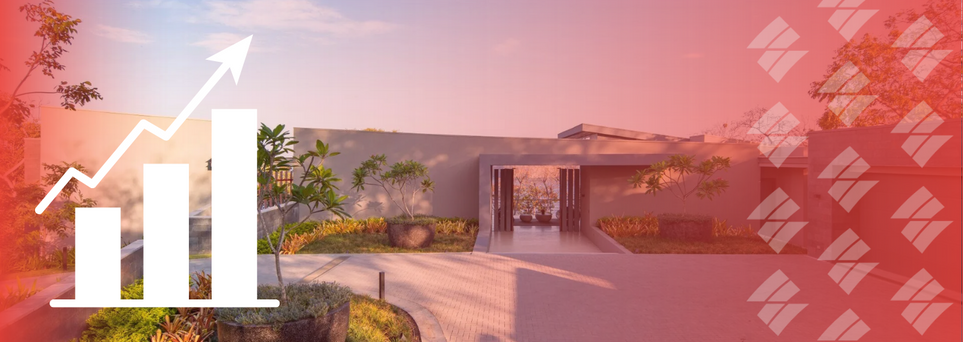
From an investment point of view, a “what if” house is also a great way to spend money if you’re looking to make a profit while also reaping the benefits of a beautiful home set in a tropical paradise.
You can make memories while also carrying out some design renovations and then sell at a profit! Or, you can hold onto the property and rent it out when you aren’t using it.
Whatever your reasons for purchasing a second (or sometimes third) property in Costa Rica, you can use the closing date on your new home as the starting point for a whole new way of living.
Why Should I Purchase Property in Costa Rica for a "What If" Home?
You have the same rights as everyone else to choose how you live your life, and if you want to live on a beachfront property or a gated community that the US can’t offer you — Costa Rica might be a great option for you.
Especially as a retirement plan, many American citizens are seeing new developments in Costa Rica as a great opportunity to live somewhere near the water, while also feeling safe and at ease in their surroundings.
Here are 5 reasons to develop your “what if” house in Costa Rica:
1. It’s politically stable
As a politically stable country, buying a house in Costa Rica also appeals to those wanting to feel more secure. Costa Rican law is also known for its transparency, so if you use a reputable real estate attorney and good legal firms to work with you with a thorough due diligence on your land purchase, you’ll be in safe hands.
2. It has the second highest life expectancy in North America
Did you know that Costa Rica has the second highest life expectancy in North America, just after Canada?
On the Nicoya Peninsula in Costa Rica, there are many residents over 100 years old. This peninsula has the highest number of centenarians in the world—most of them living without medication or disabilities.
3. It’s close, but not too close
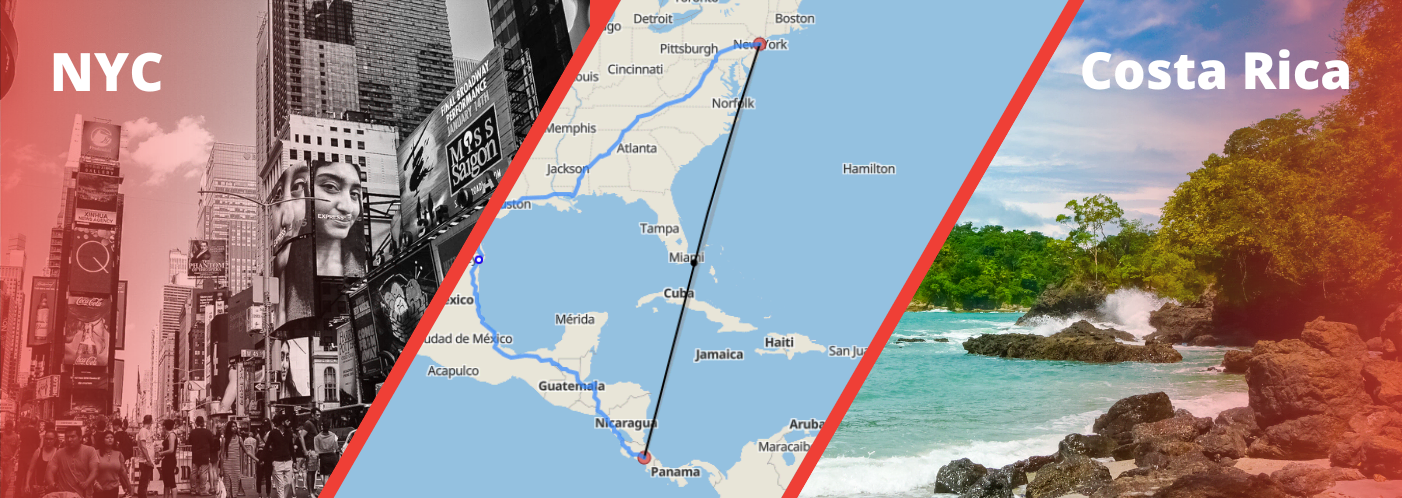
One of the biggest reasons why purchasing property in Costa Rica is so popular is that for most US citizens, a taste of paradise is only a short plane ride away.
“People have a sense of safety in Costa Rica because yes, we’re out of the way, but at the same time, we're close enough to the US that if there are any issues — you’re just a short plane ride away”. — Roderick Anderson, CEO & Design Director, SARCO Architects
With a great climate and areas completely surrounded by nature, the different property types cropping up in Costa Rica still manage to respect their environment and pay homage to a more natural habitat than in the US.
4. Good access to quality services
In Costa Rica, there is access to high-quality services like schools and healthcare. This is something that many Americans are unaware of until they actually visit the country.
Even though building costs and land ownership prices are often higher the closer you are to these services, the purchase process in Costa Rica will naturally involve checking out some of the more up-and-coming areas that are yet to skyrocket in price.
Tip: If purchasing land or property in areas of Costa Rica that have yet to be fully developed, just don’t forget to take due diligence into consideration. You want to ensure that roads will be built in order for you to access your property, and make sure that the basic services such as power and water are in place and fully legal and official.
In general, dealing with a reputable real estate attorney, real estate company, and architecture firm will mean that due diligence won’t be an issue — but it’s always something you should consider in a foreign country.
5. It is an incredibly beautiful place
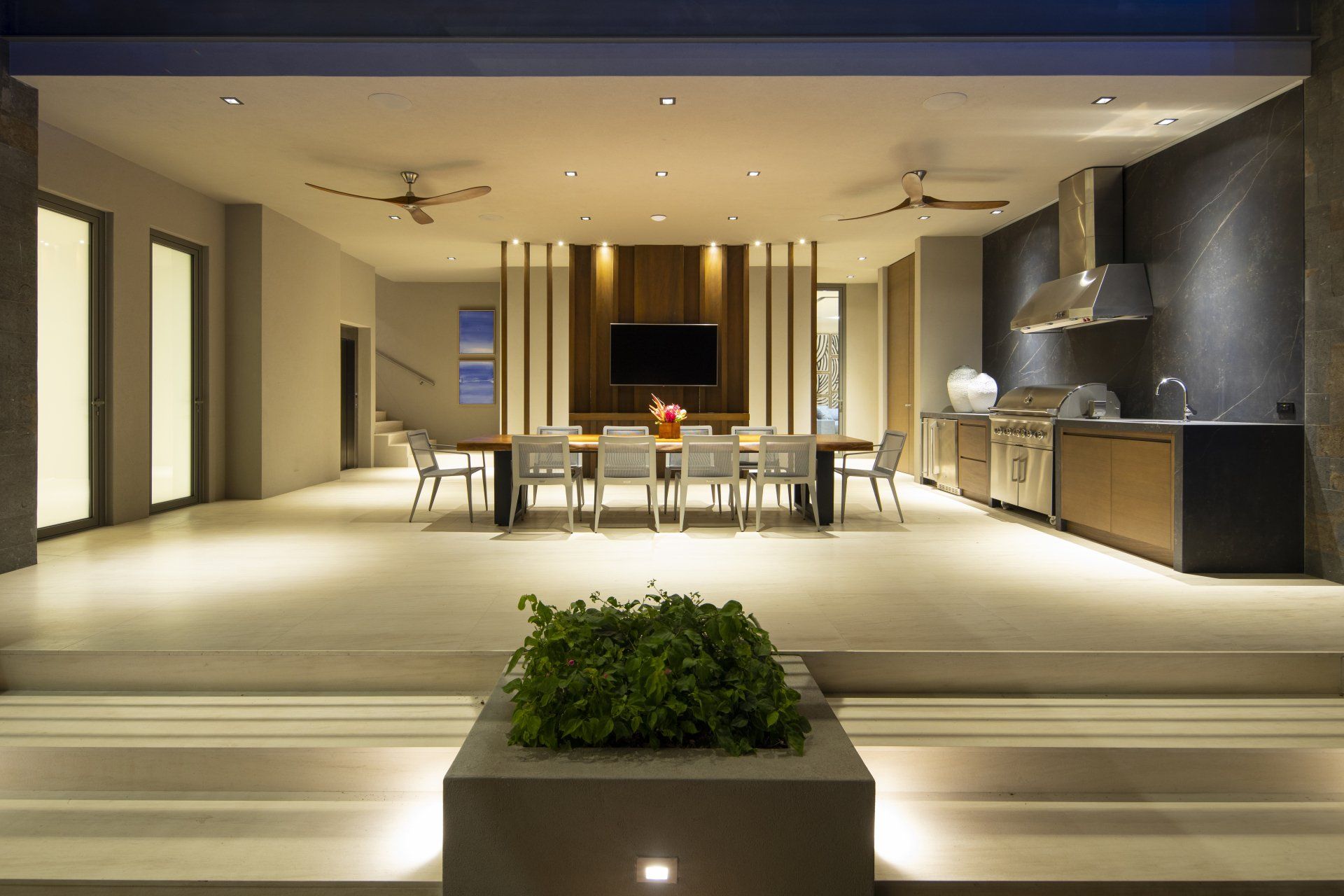
Most of the people we work with come to Costa Rica just for access to nature and to take advantage of the great weather.
In Costa Rica, you will experience amazing views, incomparable sunsets, and a closeness to nature that you can’t find in most other countries.
Is Costa Rica Safe?
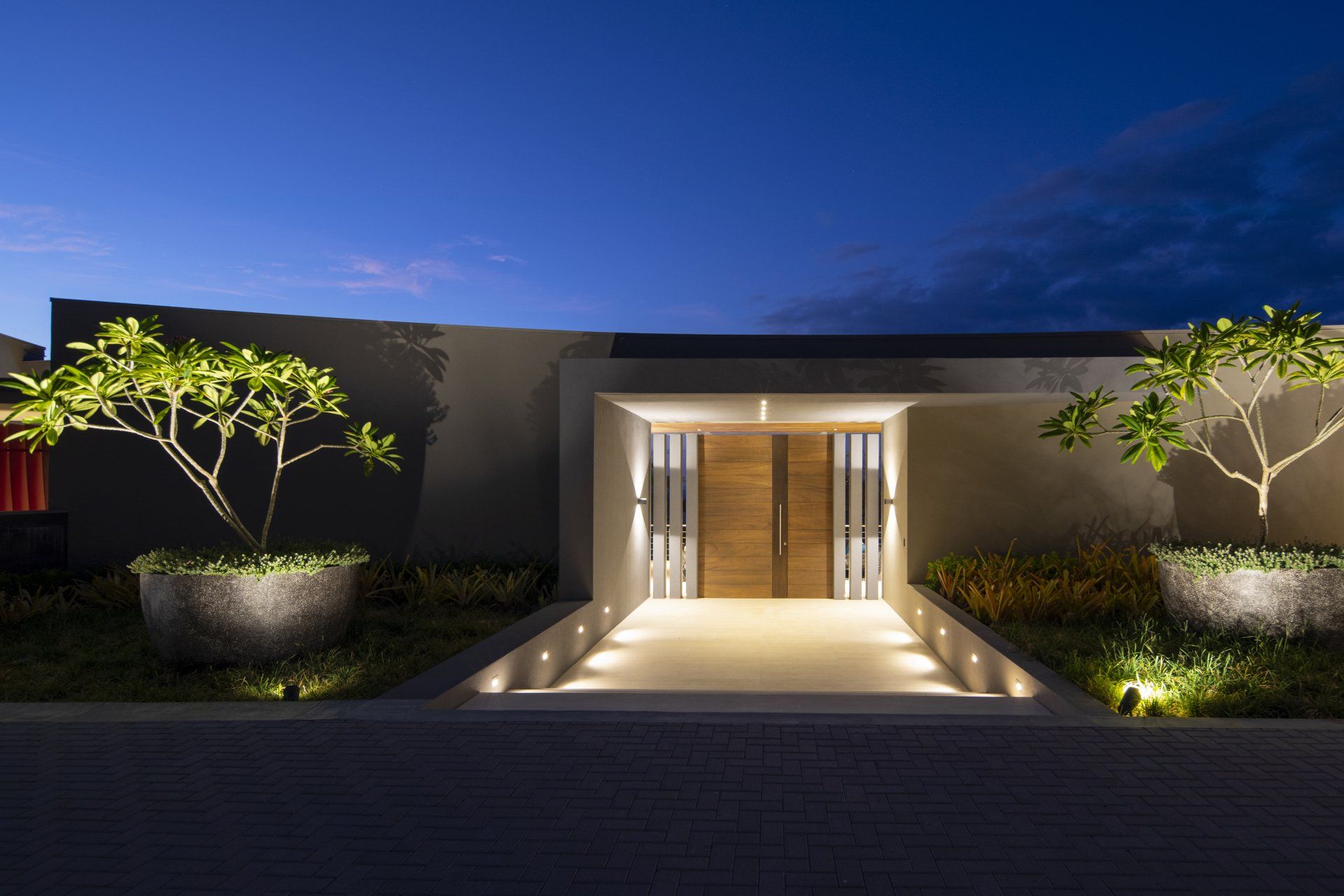
Sometimes, there is a misconception about Costa Rica being an unsafe country. As an architecture firm that has been working in Costa Rica for many years, we can confidently say that this is not the case.
With very little violent crime and mostly just petty crimes taking place, buying a home in Costa Rica or Central America poses the same level of safety concerns as many well-respected areas in America.
That said, as with all countries, some logic is required to avoid taking unnecessary risks. This might include:
● Not flaunting wealth
● Having security cameras installed on your property
● Keeping doors and windows locked at night and when you’re not home
● Recognizing areas that might attract trouble
● Connecting with people who can keep an eye on your property when you’re not there
It is also worth considering that you might need to pay for extra security for a home you aren’t living in full-time.
3 Tips When Buying Costa Rica Real Estate
We have three main tips for people considering buying real estate in Costa Rica—especially if that real estate is for a “Plan B” home.
- When in Costa Rica buying property, it’s vital that you don’t just rely on what real estate agents tell you. You should always carry out your own research.
“My first piece of advice to everybody is don't believe indiscriminately what realtors and real estate agents tell you — because a realtor will tell you what you want to hear so that they make the sale. There are some that are truly professional and very straight up, but unfortunately, they are not the norm. Most will make you comfortable in whatever way they can. They need to do it so you pull the trigger and they make the sale! So always do your research”. — Roderick Anderson, CEO & Design Director, SARCO Architects - Especially if you want to purchase a home in the country as opposed to more urban parts of Costa Rica, knowing what it’s like to live in those areas is also essential. If it’s an idyllic lifestyle you’re looking for, just make sure that it’s actually idyllic in reality.
"Are you aware of when our severe rainy seasons come along and those bridges that provide access to your town get flooded? Maybe you can't get out for three, four days. That can happen in some areas. So we just recommend doing your research properly and always asking around about the areas that interest you." – Roderick Anderson, CEO & Design Director, SARCO Architects - Lastly, our main piece of advice is to ensure that you’re happy with the version of life that the property has to offer.
Ask yourself whether you want a house that’s calming and in a more rural area, or, if you want property in a resort or a gated community that you can rent out when you’re not there.
What Should I Include in the Design of My "What If" Home?
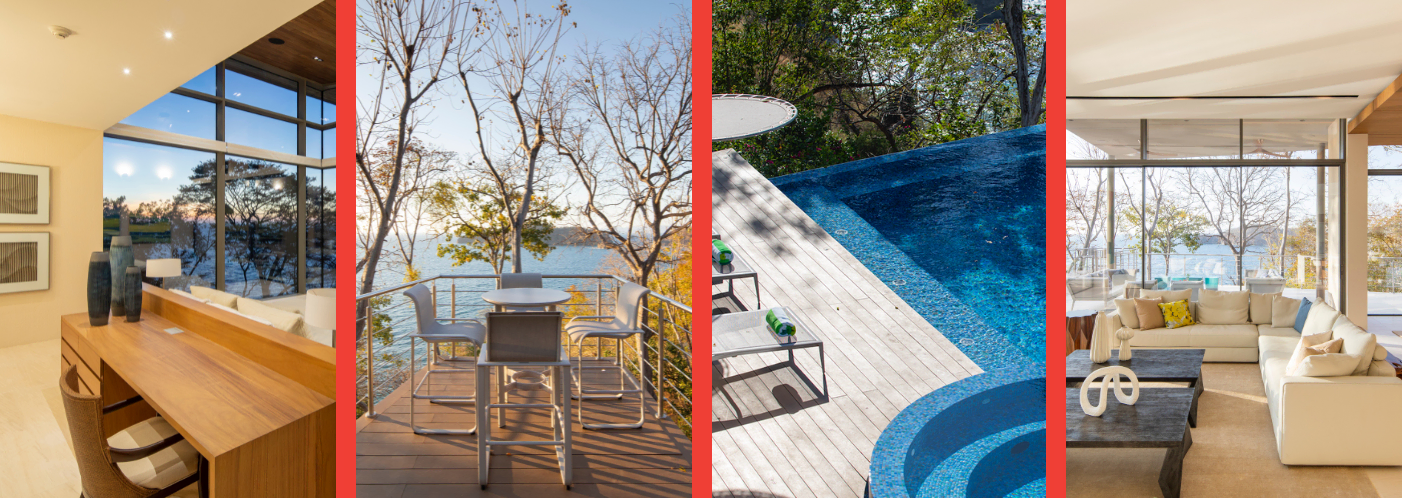
If you’re looking at purchasing land in Costa Rica to build your own custom home, or, you want to renovate an existing home to fit your style — there is a lot to consider when it comes to design. In Costa Rican homes, the potential is limitless, but working with reliable companies for all real estate transactions is crucial.
In terms of the actual design of your property, there are several things to discuss with your design and architecture team.
Most importantly, you need to decide what type of purpose you want your new property to serve. In order to establish this, consider:
1. Do you want a home that you could live in full-time?
If you’re considering living in your Costa Rican property full-time at some point, what rooms are an absolute must for you? Do you want a gym? A media room? A full outdoor kitchen?
If it’s just a commercial property or a vacation rental that you’re looking to remodel, these properties will have a completely different feel to a home that you intend on living in yourself.
2. Do you want your property in Costa Rica to have a workspace?
Many people buy their “what if” home to get away from work, but others will opt to use this home as a place to just carry out their work in a fresh environment.
If you do want to have a workspace in your home, you’ll also need to think about internet connection and ergonomic design for maximum comfort and practicality. For most people though, working from Costa Rica makes a pretty nice change from working in an office cubicle or commuting to a busy Manhattan.
“During the pandemic, we worked with a client who had two boys in their 20’s and were out of college and working. One of them came down to San Jose with a group of work colleagues and friends and set up their office in the dining room. That was their ‘Plan B’, right here in Costa Rica, and of course, for the new project we included creating better spaces for them to work from in the future.”
— Roderick Anderson, CEO & Design Director, SARCO Architects
Tip: When speaking with your design team about your workspace, consider what view it looks out onto and if there are any special features that can be included to optimize the space such as floor-to-ceiling windows. After all, your workspace in Costa Rica should feel a million miles away from the work life you’re trying to escape, right?
3. Is there space for family or visitors?
Many people who buy a “what if” home enjoy the idea of having friends and family visit, with the ability to spend quality time away from everyone’s usual responsibilities. Because the US is so large, it’s nice to have a neutral meeting ground for family and friends where you know the climate will also be warm and inviting.
With this in mind, if you intend on having visitors, is there space for them? During the purchasing process, this is something you might want to consider while speaking with friends and family. How many of them would make a habit of visiting? Are there any accessibility issues to consider? Who knows, maybe you might even end up buying a property in Costa Rica together! We’ve done several projects before where our clients were actually two families that decided to make the investment together.
For families purchasing property in Costa Rica, real estate agents might also advise that you look for a larger space. In our experience, while space definitely matters, quality design and attention to detail is the most important factor when it comes to a 'home away from home' property:
“Families all have different activities; the kids might be studying and the parents might be working. In this case, everybody will need their own little nook. For example, one thing that we often do is design a little desk area or nook in most bedrooms so that different people can have different places to work.”
— Roderick Anderson, CEO & Design Director at SARCO Architects
Make Your “What If” Home in Costa Rica a Reality
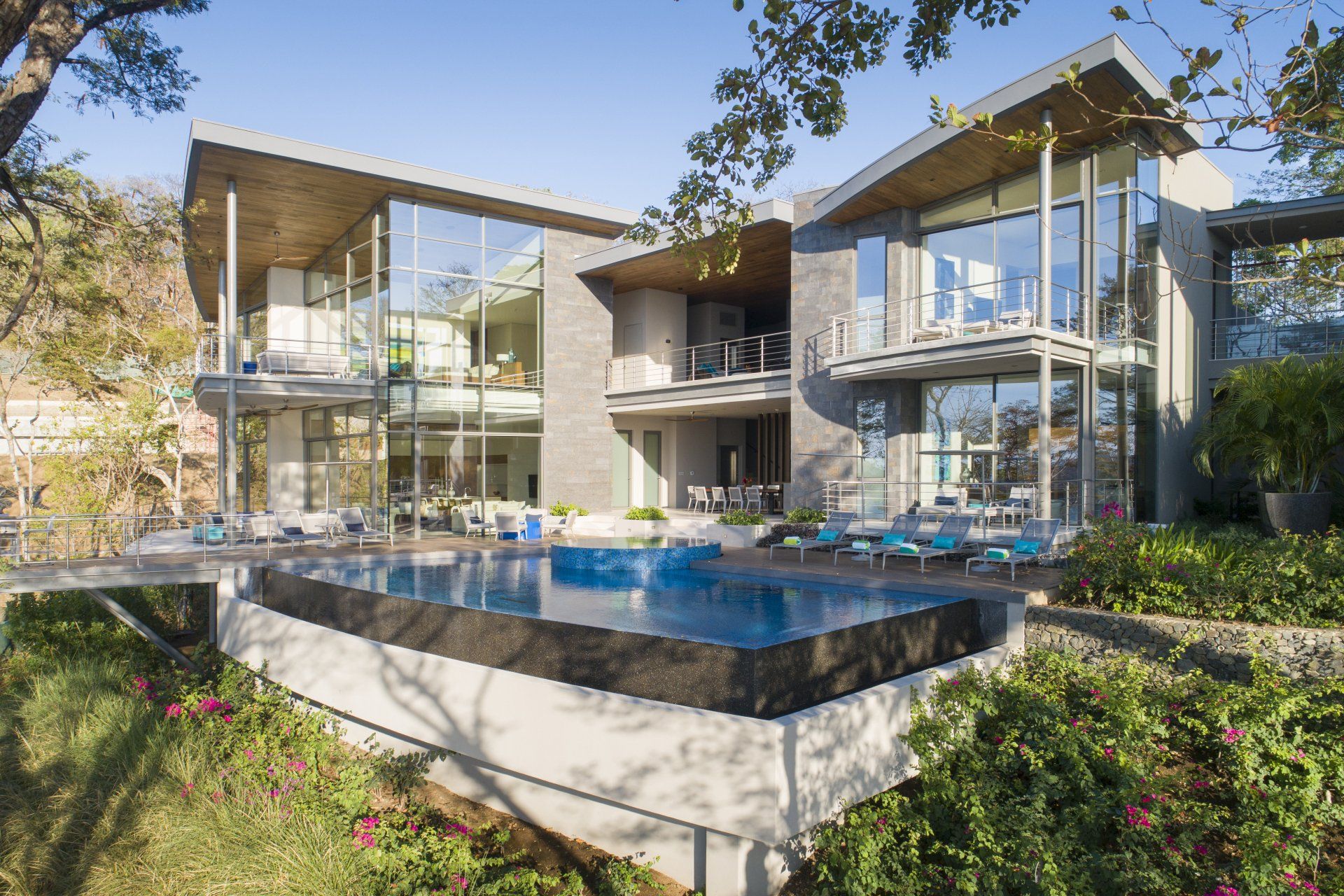
Even if you don’t intend on living there full-time, knowing that you have a property outside of the US is something that more and more Americans are considering.
If you do find yourself in Costa Rica buying property, just remember that every new place takes some adjustment, but some changes are always for the better. Especially for those living in the center of America, life by the coast offers so much more than just a sea breeze — after all, it’s a whole other way of living.
“For people coming from the east coast in the US, they may never have seen an amazing sunset like they can see here in Costa Rica.”
— Roderick Anderson, CEO & Design Director, SARCO Architects
Owning your own “escape home” doesn’t have to be a pipe dream anymore with the right research and commitment to seeing your purchase through until the closing date.
In our experience, clients who come to us for design and architecture services for their “Plan B” home never regret their choice to buy property in Costa Rica — they just regret not doing it sooner!
You can contact us or book a call with us to talk more about your options. At SARCO Architects, we’re here to help you get the most out of your home.
